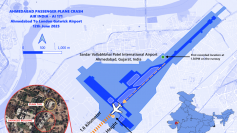According to the Myanmar Times, an English-language newspaper based in Yangon, the Ministry of Transport of and Communications is devising a National Logistics Master Plan to improve efficiency and competitiveness of logistics system, in collaboration with Japan International Cooperation Agency (JICA), which ultimately aims to attract foreign direct investment (FDI) for economy development.
Mr Masayuki Karasawa, chief representative of JICA, presented the Master Plan at the Myanmar Infrastructure Summit 2018, being held in Yangon from 20th to 22nd, March. He mentioned that the new logistics plan contains a total of 167 projects, on average, each project roughly costs $29 million, and the plan is estimated to be launched within this year.
As the National Logistics Mater Plan postulates, cargo movement will increase from 169 million tones in 2015 to 312 million tones in 2030 from Myanmar to its global trade partners. Under the Master Plan, a new logistics corridor strategy is to be implemented covering 6 logistics corridors connecting Myanmar with border gates and ports. These corridors will include the North-South Logistics Corridor linking Myanmar to China, East-West Logistics Corridor linking Myanmar to Thailand, Myanmar-India Logistics Corridor, Trans-Myanmar Logistics Corridor linking Rakhine State to Shan State, as well as the Main River Logistics Corridor and Coastal Marine Logistics Corridor.
To some extent, the Master Plan is being implemented. According to the Nation, a Bangkok based newspaper, it is expected that Myanmar and Thailand are about to sign a memorandum of understanding (MOU) for the Initial Implementation of a Cross-border Transport Agreement (IICBTA). Under the MOU, 100 trucks from each side are allowed to cross the border back and forth in both directions, which is the first step to improve the cargo movement between the two countries.
According to the World Bank, Myanmar has one of the highest GDP growth rate in Southeast Asia. It is anticipated that the GDP growth will reach 7.2% during the first half year of 2018 by the government of Myanmar.
To further attract foreign direct investment (FDI), Myanmar will adopt a new Companies Law in August, which will replace 1914 Burma Companies Act and allow foreign companies to buy up to 35% stake of Myanmar companies.
Despite these beneficial initiatives for economic growth, Myanmar is also facing "hard" challenges in both of political and economic perspectives.
The ongoing Rokhine crisis has forced 700,000 Rohingya Muslims to fleet Myanmar to Bangladesh, which is labeled as a "ethnic cleansing" by the United Nations and Western countries may carry out a new round of sanctions again Myanmar.
Besides, the "Pwint Thit Sa" (Blossoming) report, released by Myanmar Center for Responsible Business (MCRB), pinpoints that cronyism and corruption, a legacy of 50 years military rule, will continue to hinder economic development in Myanmar, particularly in jade and mining industries.
The co-author of the report, Nicolas Delange, said "it's super challenging to do business here but, again, you have to consider the context and you need to fit your business model to the context. The most important thing is to observe the trend and the trend is definitely moving up".




